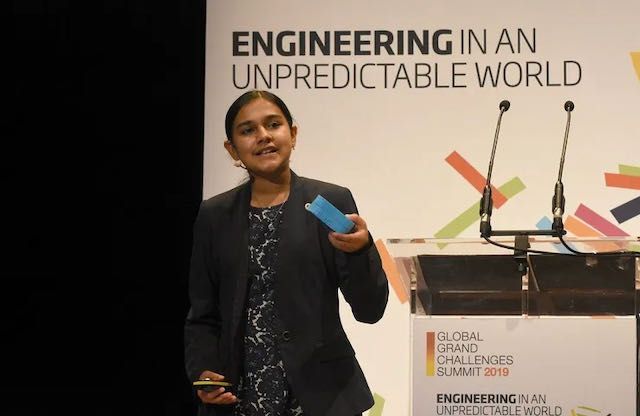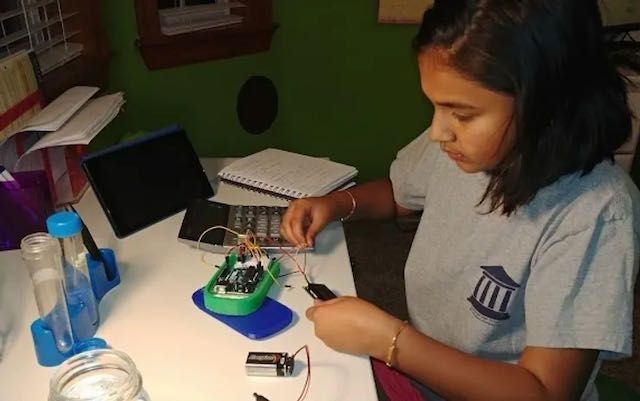
Gitanjali Rao was moderately interested when she received a “science kit” as a gift on her fourth birthday, with test tubes, goggles and other goodies in a small box. It was only when she became acquainted with the contents and just started working on innovations with speed that she realized that we must tackle science and technology to create a better future.
At the age of ten, she heard about the high lead content in drinking water in Flint, Michigan. She reacted by saying that it was not fair for children to lack access to fresh water. It should be available for everyone! She set out to create an invention that could determine the lead content of drinking water, everywhere – it would be simple and not cost much (“affordable”).
I can not see a positive future without science. We must use technological development to solve global problems – Gitanjali Rao
In 2017, she created a product she named Tethys and received – at the age of thirteen – a prize of $25,000 USD for her invention. (According to Greek mythology, Thetys was one of the Titans, the daughter of the gods of heaven, Uranus, and the earth, Gaia. She had connections to water, incidentally.)
The Tethys product combines nanotechnology with a sensor and microprocessor powered by a standard nine-volt battery. The result is sent to a smartphone via bluetooth. Simple, right?

Gitanjali discovered nanotubes (of carbon molecules) on a website at MIT – and eventually the fact that the electrical resistance of the tubes changes with lead nearby. The electrons move more slowly in the presence of lead – the more lead, the slower they go.
In 2018, she won an award at the MAKERS conference for the product and is now busy engaging partners in the project. Inventing is one thing, launching something commercial is something completely different… She has just ended a collaboration that did not turn out well, and has started launching again with a new partner.
In addition to Tethys, Gitanjali has made herself known for pushing issues of cross-border cooperation between different fields of science, in order to counteract so-called silos. She is studying at STEM School Highlands Ranch, a school that has chosen a new path around subject divisions and collaborations. STEM stands for Science, Technology, Engineering and Mathematics. It is based on openness and cooperation and not on proving that you yourself are right and must convince others of it.
The term STEM comes from “Science, Technology, Engineering and Mathematics”. By combining knowledge from several areas, the really interesting innovations are created.
Recognized for her discoveries and her global workshops on the innovation process, she has now been named Kid Of The Year by Times Magazine. This is the first time the prize has been awarded.
Her constant question remains: what can science help us with? To help us along the way, Gitanjali will soon be publishing a book entitled, Exactly, STEM.
Make the future come sooner! Or, as Gitanjali Rao puts it: the future is in our hands.




